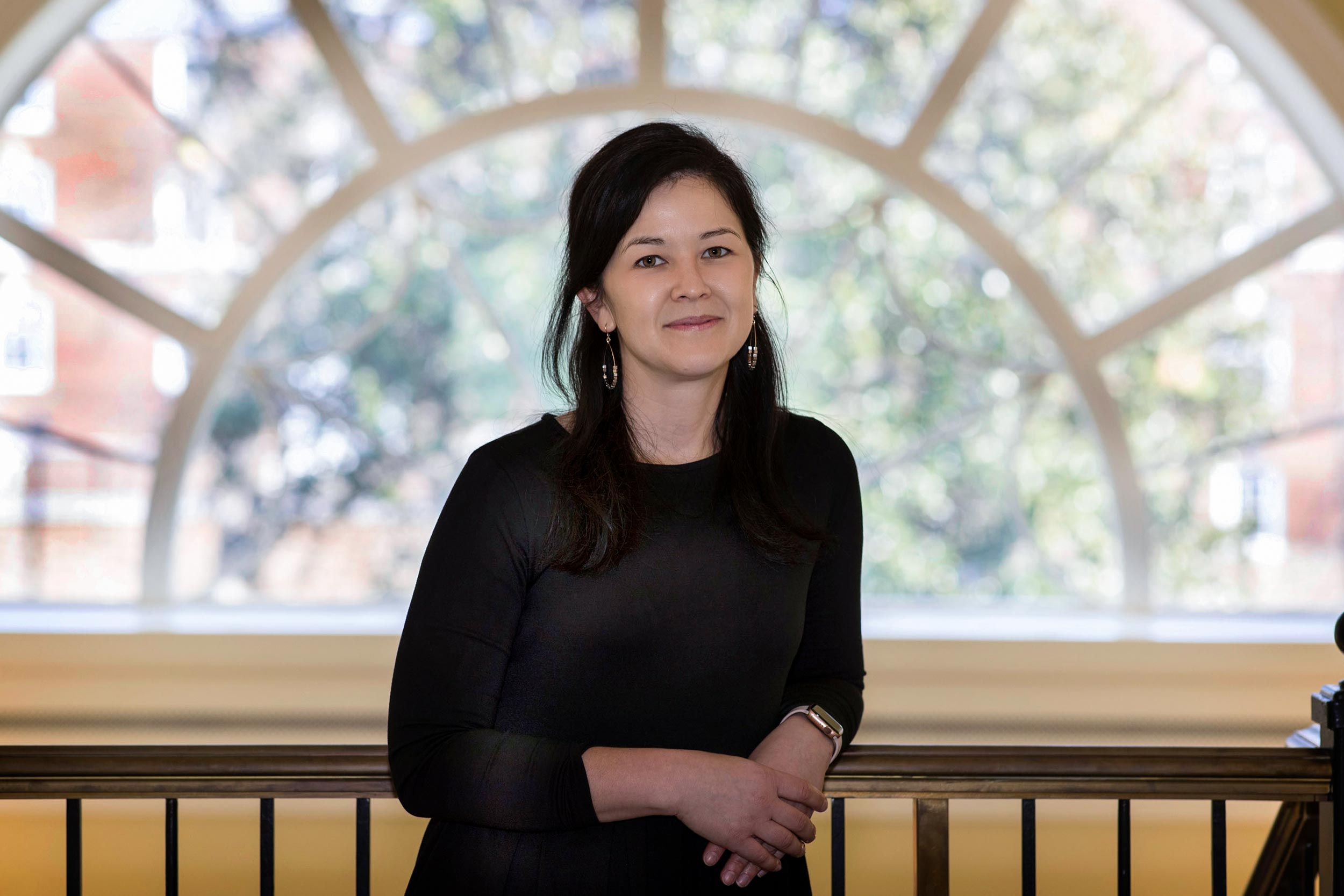Computer science will be a linchpin in nearly every sector of the next-generation workforce. As a result, national and state learning requirements are expanding to include computer science for students as young as those in elementary school.
“Computer science is everywhere,” said Jennifer Chiu, an associate professor in the University of Virginia’s Curry School of Education and Human Development who is leading a pilot study testing the integration of computer science in local science classes. “The new learning standards are important in preparing these students for their future.”
The challenge in adding computer science learning standards, Chiu said, is figuring out how to effectively teach the topic within the standard school day. As standards expand, teachers are being asked to take on a broader teaching load without removing anything else from their plate.
With $2.5 million in funding from the National Science Foundation, Chiu – working with faculty and researchers from UVA, Vanderbilt University, and SRI International – set off to design a curriculum to integrate computer science skills into fifth- and sixth-grade science classes. They chose to focus on a set of lessons on water runoff.
“Water runoff is a great example of a science and engineering problem that many students can relate to their everyday experience, and that demands computational tools,” Chiu said. “For example, students need to understand how different amounts of rainfall affect the absorption capacity for all kinds of materials – grass, concrete, rubber or mulch, and along with topography, understand how it all relates to water runoff.”
The idea was for students to ultimately program and use a computer-based model of water runoff to test their playground designs.
Chiu worked with teachers from Walker Upper Elementary School, a fifth- and sixth-grade school in the city of Charlottesville, to develop and pilot the project. When the water runoff project was initially presented to them, the details were theoretical, a fictional playground. The students, however, realized that their school actually did have a water runoff problem.
“The students noted that when it rained, a significant amount of water and debris were washed onto the school’s recreational field and play area, that ultimately kept them from being able to spend time outside,” Chiu said.
Chiu and the team, including Sarah Fick, an assistant professor in Curry, and Leidy Klotz, an associate professor of environmental systems and engineering, took the opportunity to shape the project, allowing the students to come up with a potential solution that could actually affect their immediate environment.
Chiu and the team wrote the curriculum, designed professional development supports for teachers and used specific assessments aligned with national standards to measure students’ learning as they participated in the lessons.
“Teacher professional development is an important element,” she said. “Supporting teachers in ways that allow them to integrate concepts like computer science in what they are already teaching not only helps them reach benchmarks more efficiently, it helps the students understand the ways these subjects are integrated in real life.”
The researchers ran a pilot of the curriculum in 18 classes during the 2017-18 school year and the results were promising.
“It worked,” Chiu said. “The students were able to use the computational models and other supporting tools to deepen their understanding of science and engineering.”
Part of the impact was the curriculum’s connection to the students’ experience.
“I was struck by the power of relevance in a curriculum,” said Adam Hastings, principal at Walker Upper Elementary School. “As teachers, we work to connect learning to lives. Our students – 10-, 11- and 12-year-olds – thrive on active outdoor time. We are fortunate to have a large field, but a combination of runoff and overuse take it out of service for physical education and recess. The students were incredibly enthusiastic when given the chance to find a solution that would result in better time on the field.”
Another real-world element of the project was financial planning. Although students had a given budget, many students spent much less.
“We were surprised about how students adopted a conservative fiscal stance,” Hastings said. “Many proposals came in well under. Students commented about how they felt a need to spend enough money to solve the problem, rather than to spend the allotted budget.”
Ultimately, Hastings said, “The students were able to create solutions that balanced cost, materials, accessibility issues, existing infrastructure, and – perhaps most important – a commitment to keeping an area for active play.”
While school officials haven't yet settled on a long-term solution, the students' work prompted changes to the field's reservation schedule to help improve water absorption in the meantime.
Building upon the successful pilot, Chiu’s team is implementing revised versions of the project on a larger scale, expanding to California and Tennessee elementary schools. The goal is to create flexible resources so that students can build computational models of water runoff using their own schools as a context, or be able to design solutions for other schools.
Chiu’s long-term vision is to create sets of curricular resources like this one that cover a multitude of challenges and topics. Her hope is that an increased diversity of lessons integrating computer science into other subjects encourages students to imagine how computer science might fit into whatever they are interested in doing, as well as how computational approaches can be used to develop solutions to important problems.
“We want students to know there is more to computer science than robots and video games,” Chiu said. “Computer science concepts and skills are needed in nearly every industry. Our hope is to expose students early to computer science in a way that shows its broad application.”
Chiu’s team aims to build out a repository of integrated resources and professional development specifically targeted for Virginia schools and teachers. A proposal was submitted to the Virginia General Assembly, but did not get funded during its 2019 session. The team plans to resubmit the proposal in 2020.
Media Contact
Article Information
March 29, 2019
/content/local-students-pilot-new-uva-curriculum-combining-computers-rain-and-playgrounds

